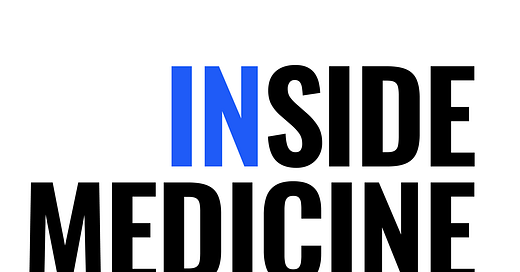Today, I’m doing this in podcast form. The podcast and transcript are above. But if you just want the quick run-down…
How did we get to a point where we can actually save lives in the ER? Trial and error. Innovation. Technology. Research. Practice. Refinement. Practice. Refinement. Practice. Refinement…
While I wish we could do more, I am also amazed at the tools we have developed. More than that, I’m sure future generations will look on us as having lived in the stone ages. That’s good. That means the future is brighter.
How will we get there? By pushing the envelope.
Today, I’m taking you inside on some cutting-edge trauma research. The topic is an interesting one—a brilliant idea that could one day save lives, but which, so far, has not worked out.
Key points:
The procedure called REBOA (Resuscitative Endovascular Balloon Occlusion of the Aorta) aims to temporarily stop blood flow in the aorta to buy time for trauma patients with internal bleeding below the diaphragm.
The procedure involves inserting a tube into the femoral artery and snaking it up to the aorta, where a balloon is inflated to stop the blood flow.
A recent study in the Journal of the American Medical Association on REBOA for blunt trauma (e.g., car accidents) concluded that the procedure did not improve outcomes and may have even caused harm by delaying arrival at the operating room from the ER.
One critique of the study is that clinicians were only trained for a single day on this complex procedure, calling into question whether more experienced teams might have different results.
REBOA could be more effective if done by highly trained teams during patient transport. This would have two benefits: 1. Highly-skilled clinicians who do this procedure with relative ease; 2. Use the time during transport to do the procedure (i.e., in the ambulance or helicopter), thereby avoiding delays in reaching the OR that seem to happen when they do REBOA in ERs.
I just recorded a podcast on this with my colleague Dr. Lauren Westafer aimed at clinicians. If you are interested in more detail on the research and our take, take a look at FOAMcast.org.
Questions? Comments? Share them below!













Share this post